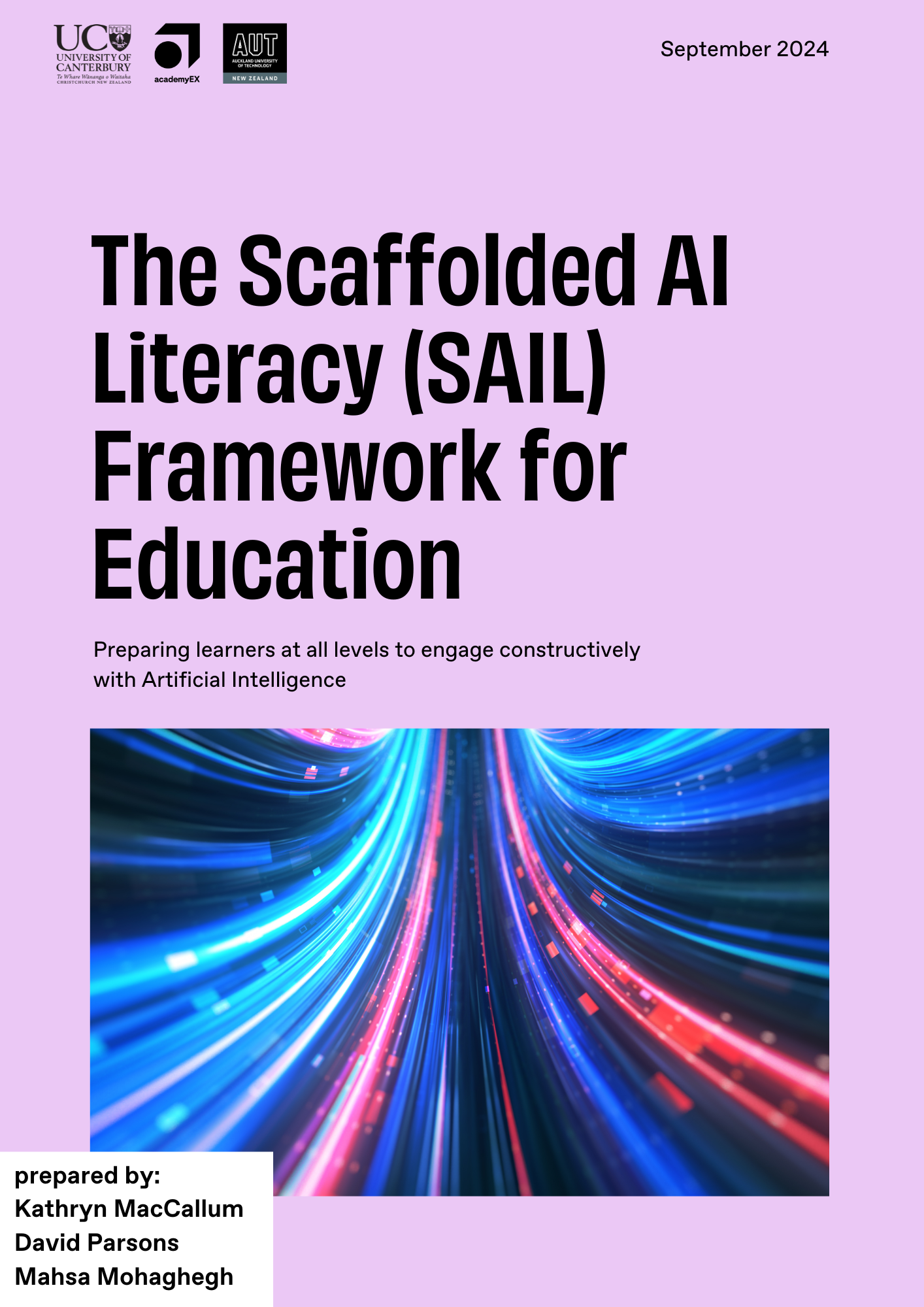The Scaffolded AI Literacy (SAIL) Framework for Education
Preparing learners at all levels to engage constructively with Artificial Intelligence
DOI:
https://doi.org/10.54474/herourou.v1i1.10835Keywords:
AI Literacy, AI in Education, Delphi StudyAbstract
This report introduces an Artificial Intelligence (AI) literacy framework developed by a research team from The University of Canterbury, academyEX, and AUT.The Scaffolded AI Literacy (SAIL) framework was developed from a Delphi Study of 17 experts in AI from Aotearoa New Zealand and overseas, with representatives from both education and industry, and cultural experts.
The framework has four levels of capability. Three define AI literacy, with an additional level that indicates what further capabilities come beyond AI literacy.
- Know and Understand AI
- Use and Apply AI
- Evaluate and Create AI
- + Beyond AI Literacy
At each level, there are six categories of AI literacy
- The Impacts of AI
- What AI Is and How It Works
- Cognitive Skills
- Applied Skills
- Social, Cultural, and Ethical Issues
- Risks and Mitigations
The report also includes information about an online tool that has been developed to help educators evaluate or design course materials that address level 1 of the framework.

Downloads
Published
2024-09-18
How to Cite
MacCallum, K., Parsons, D., & Mohaghegh, M. (2024). The Scaffolded AI Literacy (SAIL) Framework for Education: Preparing learners at all levels to engage constructively with Artificial Intelligence. He Rourou, 1(1), 23. https://doi.org/10.54474/herourou.v1i1.10835
Issue
Section
Articles
License
Copyright (c) 2024 He Rourou

This work is licensed under a Creative Commons Attribution-NonCommercial-ShareAlike 4.0 International License.




